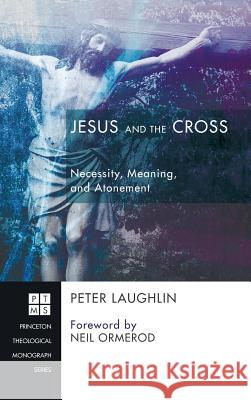Jesus and the Cross » książka
Jesus and the Cross
ISBN-13: 9781498227117 / Angielski / Twarda / 2014 / 286 str.
Jesus and the Cross
ISBN-13: 9781498227117 / Angielski / Twarda / 2014 / 286 str.
(netto: 203,28 VAT: 5%)
Najniższa cena z 30 dni: 209,92
ok. 16-18 dni roboczych.
Darmowa dostawa!
According to the Nicene Creed, Christ died for us and for our salvation. But while all Christians agree that Christs death and resurrection has saving significance, there is little unanimity in how and why that is the case. In fact, Christian history is littered with various accounts of the redemptive value of Christs death, and new models and motifs are constantly being proposed, many of which now stand in stark contrast to earlier reflections. How then should contemporary articulations of the crosss saving significance be judged?At the heart of this book is the contention that Christian reflection on the atonement is faithful inasmuch as it incorporates the intention that Jesus himself had for his death. In a wide-reaching study, the author draws from both classical scholarship and recent work on the historical Jesus to argue that not only did Jesus imbue his death with redemptive meaning but that such meaning should impact expressions of the crosss saving significance. ""How, Laughlin asks, can we connect Gods will to the cross of Jesus if the cross was itself an act of evil and injustice? How can the Christian theologian not see the inherent contradiction of Gods love and grace in (an) act of such barbaric injustice? Do not some atonement theories implicate God in evil? Laughlin goes to this set of questions and to the theodicy problem to begin resolving atonement theory, and alongside that issue he contends an atonement theory must be consistent with how Jesus himself spoke of his death. This book breaks fresh ground for anyone interested in atonement theory.""--Scot McKnight, Professor of New Testament, Northern Seminary, Lombard, IL""Authenticity in articulating the redemptive meaning of Jesuss death is at the heart of this book. The question is, what were Jesus of Nazareths aims in undergoing death? Theologies of the atonement generally bypass this question, thus accentuating a split between history and theology. Laughlins achievement is to have shown how a critical realist presentation of the Jesus of history can play a crucial role in developing an atonement theology faithful to Jesuss own intentions.""--Raymond Canning, Professor of Theology, Australian Catholic University, Canberra, AustraliaPeter Laughlin is the Director of the Alliance College of Australia and Lecturer in Theology at the Australian College of Ministries, a member institution of the Sydney College of Divinity.











